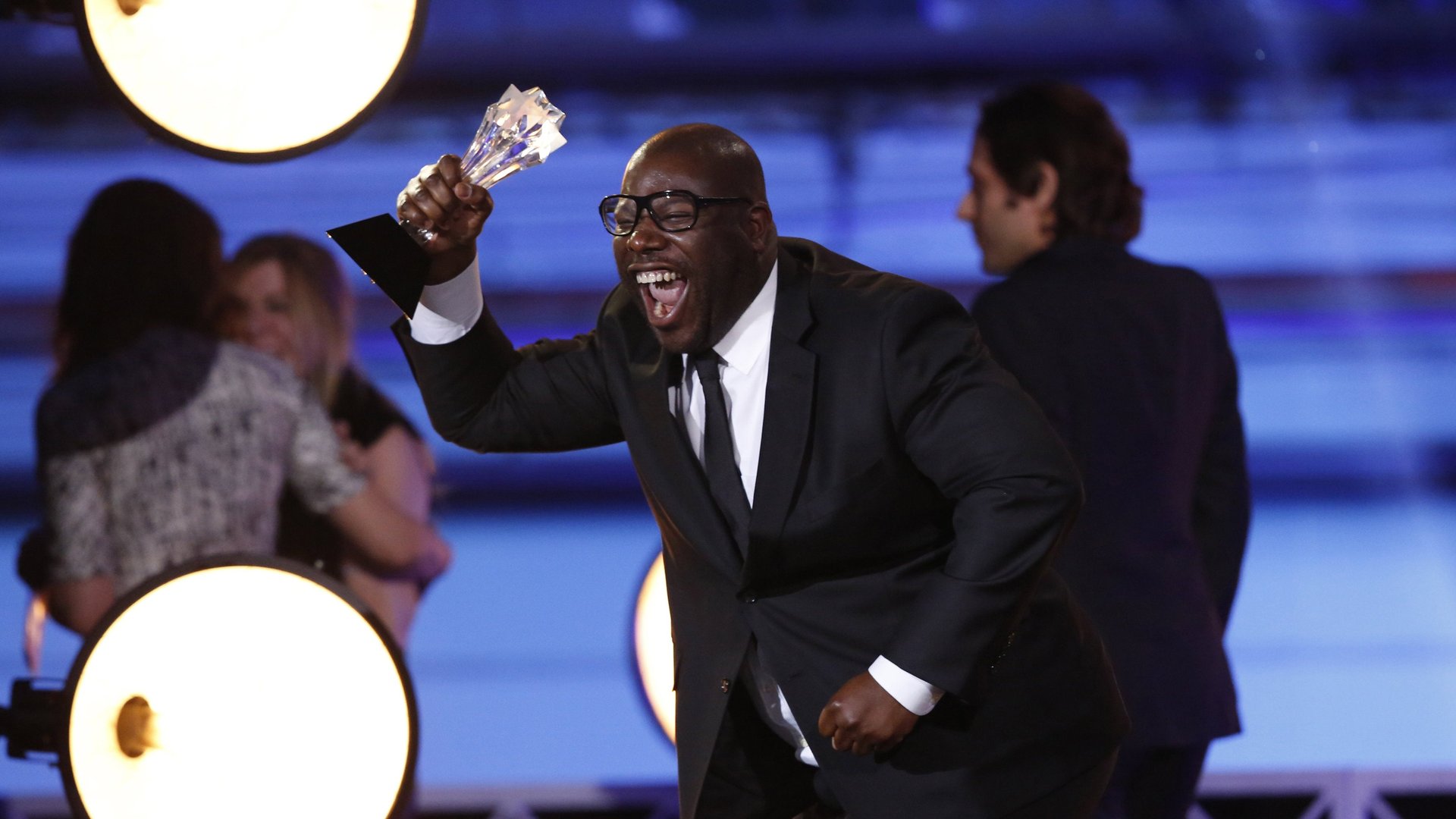“12 Years” only proves that Hollywood is a slave to business as usual
The Oscar ceremony is always a bittersweet event in my household, and this year was no exception. I like to think of the Academy Awards as a reflection of the beauty of art and a testament to the power of story telling. Yet by the end of the night, I always end the night angry over Hollywood’s challenges in depicting race and ethnicity. This year was no different, though host Ellen DeGeneres beat me to the punch in the first few minutes of the show: If 12 Years a Slave doesn’t win, she said, “you’re all racists.”


The Oscar ceremony is always a bittersweet event in my household, and this year was no exception. I like to think of the Academy Awards as a reflection of the beauty of art and a testament to the power of story telling. Yet by the end of the night, I always end the night angry over Hollywood’s challenges in depicting race and ethnicity. This year was no different, though host Ellen DeGeneres beat me to the punch in the first few minutes of the show: If 12 Years a Slave doesn’t win, she said, “you’re all racists.”
At the outset, I must say I was cheering for 12 Years. My eyes teared during Lupita Nyong’o’s win for supporting actress as the melancholic, tortured Patsy. Under Steve McQueen’s steady editing hand, this year’s best picture was a beautiful, powerful film with its subtle yet terrifying portrait of America’s “original sin.” But the Academy’s choice doesn’t mollify my overall ambivalence about the coveted award when it comes to African American narratives; in fact, it only reinforces my desire to see change.
Here’s why: On the rare occasions that the Academy manages to nominate films that depict an aspect of the black experience in this category, like this year’s 12 Years A Slave, they all too often fall into tropes that have been in existence since the beginning of the motion picture industry—the African American as “trapped” seems to be the theme of choice as of late. Virtually all of the best picture nominees in the past few years, more often than not, portray African Americans as perpetually trapped, confined, and beholden to a world dominated and ruled by whites, no matter how much individual agency these characters have. It’s a ghettoization of blacks, without having to show the actual “ghetto.”
Think about the best picture nominees that have had black leads or themes about African American life since the turn of the century. In 12 Years a Slave, Lincoln, and Django, African Americans were literally in chains, with their freedom relying on white folk. The Help and Precious, both taking place in different eras, portray another kind of entrapment and marginalization, particularly by black women, and even last year’s Beasts of the Southern Wild, we find the main characters also slaves to their circumstances (though they live around whites with similar experiences). Films like the biopic Ray provides an exception—that was released 10 years ago. Narratives that challenge the contemporary status quo of black folk, such as Fruitvale Station, or show a complexity in the very diverse black experience, such as 2011’s Pariah, also seem to go un-awarded by the Academy.
Last fall, studio executive Harvey Weinstein said the number of black films this year—his studio itself put out three, Fruitvale Station, The Butler, and Mandela—was a sign of progress. “Hopefully it signals, with President Obama, a renaissance. He’s erasing racial lines. It is the Obama effect. It’s a better country. What a great thing.”
All that hope came crashing down for me during the Oscar announcements; none of these films failed to garner even a single nod from the Academy in a significant category, a disappointment for a year that the New York Times called a “breakout for black filmmakers.” It proved that while more diverse representations of black life are being shown in theaters from romcom’s like the Best Man Holiday to biopic 42, questions of just how “legitimate” these films are, not just in monetary value (since many of these made a profit), but as works of art, as cultural commodities to “mainstream society” is clearly still up for debate.
Sure, sometimes individual characters get nominated for race-neutral roles, like Denzel Washington in Flight and Training Day. But narratives that focus solely on black characters aren’t often seen as “universal.” If films like Silver Linings Playbook, the Kids are Alright or Lost in Translation had all black casts, I wonder if they would still have been nominated for as many awards? I hope the answer is yes.
But the track record leads me to believe otherwise.
Fortunately, African Americans have learned not to seek validation along from the Oscars (which still has a voting bloc that is was reportedly 94% white and 77% male in 2012) and have adopted their own awards like the NAACP Image Awards to celebrate their stories.
We know black stories matter, that they count. We know there are audiences for films about black life. It’s time to go beyond the stories that only speak of blacks as marginalized characters. I want those romantic comedies, quests for identity, fights against the “system” and family stories to be seen as “legitimate,” and beloved by all audiences, as much as a our slave stories and tales of woe. Without a full place at the Oscar table, with stories that captivate the complete humanity of African Americans, how can blacks be seen as anything but marginalized? How can they be seen as fully human?
Indeed, the fight remains not just for diversity in the faces that represent the American experience, but for diversity in the narratives surrounding that experience. Stories have power. They can change the way we see the world and ourselves. Folks in the film industry know this more than anyone else.